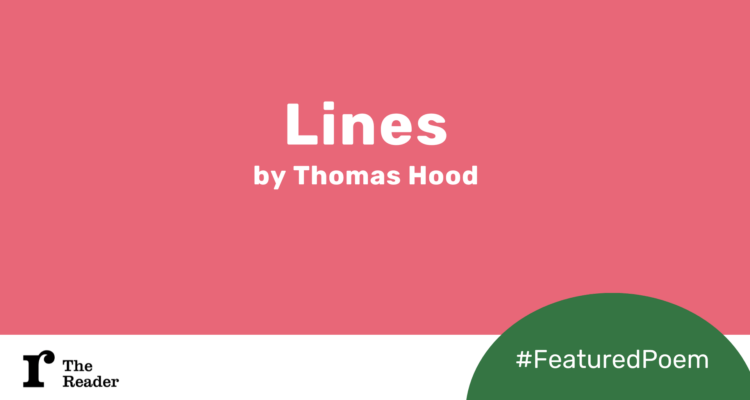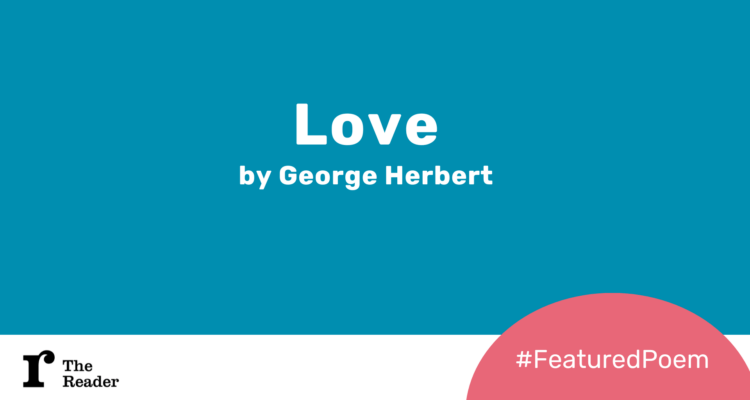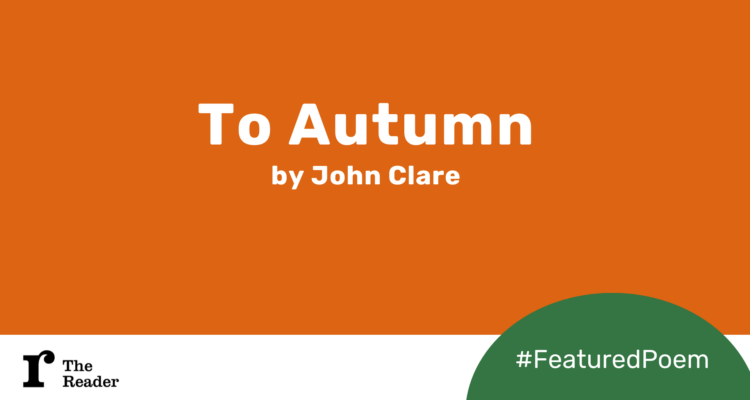Featured Poem: How Clear, How Lovely Bright by A.E. Housman
This week in our special series of Featured Poems, Learning and Quality Coordinator at The Reader, Lisa Spurgin looks at the poem How Clear, How Lovely Bright by A.E. Housman. The theme for our #DailyReadings in September is beginnings and endings and we think this poem is the perfect way to start a brand new week.
I’m reading this poem on a sunny, blue-skied morning in early September where it feels like the last remnants of the summer are shining out before autumn proper is ushered in. It feels very fitting for the first part in particular. There is something about the sun shining early on in the day, ‘those beams of morning play’, which sets you up and gives a sense of optimism that the day ahead will be a good one. I love the phrase ‘lovely bright’ – it seems to add an extra feeling of warmth and positivity rather than to just say that the morning is bright. The laughter that comes from high above is such a joyful image, and the day ahead being ‘like a bird set free’ seems so hopeful and also makes me feel as though there is an adventure to be had, waiting to be discovered. So far, so good!
The second part pulls me up slightly, makes me pause for thought. It’s that first line: ‘To-day I shall be strong’. I’m wondering what has happened for the person speaking; it feels like such a clear declaration that this day in particular is important, a day that a significant shift will be made and a new beginning come into effect. It makes me think of looking at yourself in the mirror before an exam or a job interview, or something else that feels intimidating, and giving yourself a ‘pep-talk’ to say “I can do this, it will be okay.”
The following lines seem to add even more weight to the situation. Is it realistic to make such a strong and definitive statement as ‘No more shall yield to wrong’? ‘Squander’ feels like such an important word here, too. It’s quite easy to feel like you’ve lost days, especially at the moment when life still feels like it’s been turned on its head in many ways. The idea of retrieving them is really interesting; somehow it seems to say more than “I’ll do better from now on”, holding onto and recalling the past as well as moving forward into the future. Is it this mindset of paying attention to past regrets and making up for what has gone squandered that makes this person – or any of us – more likely to ‘keep the vow I never kept before’, I wonder?
It feels like quite a change has taken place from the optimistic beginning of the poem to the last part. The sun is setting ‘heavily’, such a contrast to the soaring start of the day. It makes me wonder what the events of this particular day have been, and how we can never really know what will be in store – we can hope for the day to be as ‘lovely bright’ as the sun that brings it in, but that’s not a guarantee. I’m really intrigued by ‘Past touch and sight and sound’; a little in contrast to being able to retrieve days that have gone by, this makes it feel like they disappear past all sense once the sun has set. I’m not completely sure whether it is this particular day which has been ‘the remorseful day’, and my first instinct would be to glad that it falls ‘hopeless under ground’ as remorse isn’t a good thing to hold onto. But perhaps we need to pay attention to those days too to move to the brighter days ahead?
I feel as though this poem has lots to say about beginnings and endings, and how it’s not quite so easy to separate one from the other. Certainly an interesting one to keep returning to, regardless of how clear or how lovely bright the day is.
How Clear, How Lovely Bright
How clear, how lovely bright,
How beautiful to sight
Those beams of morning play;
How heaven laughs out with glee
Where, like a bird set free,
Up from the eastern sea
Soars the delightful day.
To-day I shall be strong,
No more shall yield to wrong,
Shall squander life no more;
Days lost, I know not how,
I shall retrieve them now;
Now I shall keep the vow
I never kept before.
Ensanguining the skies
How heavily it dies
Into the west away;
Past touch and sight and sound
Not further to be found,
How hopeless under ground
Falls the remorseful day.
A.E. Housman
Share
Related Articles

Featured Poem: Lines by Thomas Hood
Our Featured Poem for February is 'Lines' by Thomas Hood, selected and read by Frances. Lines by Thomas Hood Let…

Featured Poem: Love by George Herbert
The Featured Poem for January is Love by George Herbert and is from the anthology Stressed, Unstressed and is read by…

Featured Poem: To Autumn
For November's Featured Poem, Julie is reading 'To Autumn' by John Clare To Autumn by John Clare Come, pensive…


